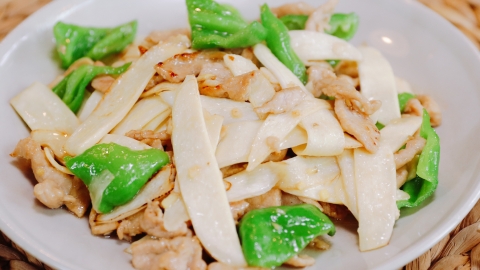Is water bamboo poisonous?
Generally speaking, water bamboo (Zizania latifolia) is usually non-toxic. Detailed analysis is as follows:

Water bamboo is a perennial herbaceous plant belonging to the Poaceae family and the genus Zizania. It is a common aquatic vegetable rich in protein, carbohydrates, B-complex vitamins, vitamin E, and minerals such as potassium, phosphorus, and magnesium. It helps supply energy and enhance immunity in the human body. In culinary applications, water bamboo can be stir-fried, braised, or served cold. Its texture is tender and sweet, making it popular among consumers. Moreover, water bamboo has been widely consumed for centuries, and no cases of poisoning caused by its consumption have been reported. However, water bamboo contains relatively high levels of oxalic acid. Blanching before cooking can remove most of the oxalic acid and prevent interference with calcium absorption.
Although water bamboo itself is non-toxic, eating it raw may lead to infection with parasites such as Fasciolopsis buski, which can cause symptoms including abdominal pain, diarrhea, nausea, and dizziness. Therefore, eating raw water bamboo is generally not recommended.
Water bamboo contains a certain amount of oxalic acid, especially wild varieties, which may accumulate trace amounts of calcium oxalate crystals. Long-term excessive intake of oxalic acid may increase the risk of developing kidney stones. Therefore, water bamboo should not be consumed together with other high-oxalate foods such as spinach to prevent calcium oxalate precipitation. Additionally, adding a small amount of vinegar during cooking can help break down oxalic acid and reduce the risk.




